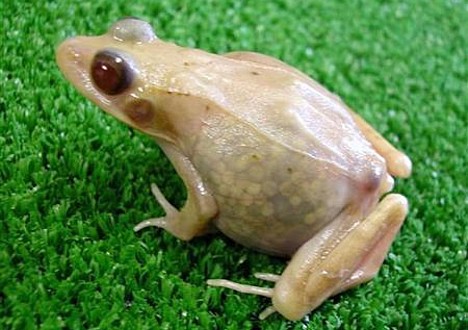 On October 3, a team of American and Japanese researchers from the Audubon Center for Research of Endangered Species (New Orleans) and the Kato Ladies Clinic (Tokyo) announced success in producing what they are calling the world's first kittens born from the frozen egg cells of a domestic cat, thanks to a special method of cryopreservation. Feline ova have long proved difficult to freeze properly because of their high fat content.
On October 3, a team of American and Japanese researchers from the Audubon Center for Research of Endangered Species (New Orleans) and the Kato Ladies Clinic (Tokyo) announced success in producing what they are calling the world's first kittens born from the frozen egg cells of a domestic cat, thanks to a special method of cryopreservation. Feline ova have long proved difficult to freeze properly because of their high fat content.
The breakthrough is expected to help protect endangered and threatened cat species, say the researchers, who obtained a total of 28 egg cells from ovaries removed from a female pet cat undergoing a desexing operation. After preserving the eggs through vitrification -- a rapid cooling technique that prevents the fluid inside the eggs from forming into ice -- and placing them in cold storage for 3 weeks, the researchers thawed 18 of the eggs, fertilized them through micro-insemination, and implanted the embryos into the womb of a surrogate mother cat. Two months later, at the end of August, three healthy "ice kittens" (two females and one male) were born at the Audubon Center, where they remain in good condition.
The researchers are now preparing to test their cryopreservation technique on the ova of canine species such as the Mexican wolf, as well as on lion ova. Noriko Kagawa, a researcher at Kato Ladies Clinic, says, "We hope to one day make it possible to preserve every type of animal."
[Source: Hochi Shimbun]

 The Japan Aerospace Exploration Agency (JAXA) and public broadcaster NHK have succeeded in capturing their first high-definition video of Earth from the Kaguya lunar explorer, a.k.a. SELENE (SELenological and ENgineering Explorer), an orbiter launched in mid-September on a mission to study the moon. (
The Japan Aerospace Exploration Agency (JAXA) and public broadcaster NHK have succeeded in capturing their first high-definition video of Earth from the Kaguya lunar explorer, a.k.a. SELENE (SELenological and ENgineering Explorer), an orbiter launched in mid-September on a mission to study the moon. (








 NEC Corporation has teamed up with Aida Engineering to develop a briefcase-sized DNA analysis system that allows police to perform comprehensive DNA testing at crime scenes in as little as 25 minutes. NEC is calling the device the world's first portable all-in-one DNA analysis system able to handle all DNA testing processes from extraction to analysis. Designed specifically for law enforcement officials and planned for release in 2008, the system measures 50 x 40 x 20 cm (20 x 16 x 8 in.), making it small enough to be carried to crime scenes or other locations where quick DNA analysis is required.
NEC Corporation has teamed up with Aida Engineering to develop a briefcase-sized DNA analysis system that allows police to perform comprehensive DNA testing at crime scenes in as little as 25 minutes. NEC is calling the device the world's first portable all-in-one DNA analysis system able to handle all DNA testing processes from extraction to analysis. Designed specifically for law enforcement officials and planned for release in 2008, the system measures 50 x 40 x 20 cm (20 x 16 x 8 in.), making it small enough to be carried to crime scenes or other locations where quick DNA analysis is required. 
